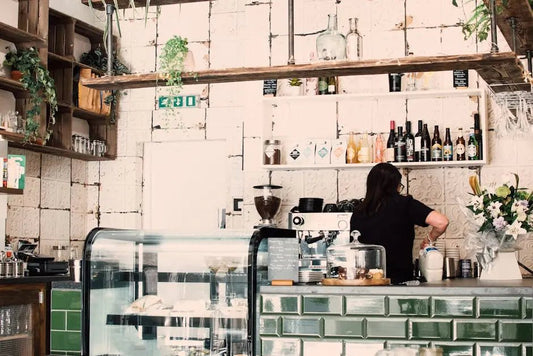Bali coffee is not just a beverage; it represents a deep-rooted culture and commitment to sustainable farming practices. In this article, we will explore the various methods that ensure Bali coffee is grown with care for both the environment and the community.
Understanding Bali’s Unique Coffee Ecosystem
Bali’s coffee ecosystem is as lush as the island itself, creating a perfect backdrop for coffee cultivation. The island’s volcanic soil is rich in nutrients, which significantly impacts the quality of Bali coffee. Here, the combination of altitude and climate creates an environment where coffee beans thrive.
In this tropical paradise, coffee plants are typically grown at higher elevations. The cooler climate allows the cherries to mature slowly, which enhances their natural flavors. This ensures that every sip of Bali coffee is packed with rich, complex notes that coffee enthusiasts cherish.
Moreover, the diverse flora and fauna play a crucial role in fostering organic growth. Bees, birds, and other wildlife contribute to the pollination process, ensuring a healthy coffee crop. This interconnectedness reflects the importance of maintaining a balanced ecosystem.
Traditional Farming Methods
Traditional farming methods are fundamental to sustainable coffee production in Bali. Farmers often use age-old techniques passed down through generations, emphasizing harmony with nature. This approach minimizes chemical usage and promotes biodiversity.
For instance, many Balinese farmers rely on hand-picking coffee cherries at their peak ripeness, ensuring only the best cherries are selected. This labor-intensive process, while demanding, results in superior quality coffee, aligning with sustainable practices.
Additionally, farmers cultivate their crops alongside food plants and shade trees, which serve multiple functions. This not only provides variety in local diets but also protects coffee plants from harsh sunlight, creating a healthier microclimate for growth.
Organic Practices in Coffee Cultivation
Organic practices are at the heart of Bali’s sustainable coffee growing process. Many farmers abstain from synthetic fertilizers and pesticides, opting instead for natural alternatives like compost and organic matter. This commitment to organic farming not only nurtures the soil but also enhances the coffee’s flavor profiles.
One common practice involves using natural pest control methods. Farmers introduce beneficial insects that prey on common pests, reducing the need for harmful chemicals. This promotes a healthy ecosystem around the coffee plants, vital for high-quality production.
Furthermore, organic certification for Bali coffee opens doors to international markets, where consumers are increasingly seeking sustainably produced products. This growing demand incentivizes farmers to adhere to organic practices, benefiting both the environment and their livelihoods.
The Role of Shade-Grown Coffee
Shade-grown coffee is an integral part of sustainable practices in Bali. By allowing coffee plants to grow under the canopy of trees, farmers create a natural habitat that protects biodiversity. This method mimics the plant’s natural environment, leading to healthier plants and better quality coffee.
The shade not only nourishes the coffee plants but also contributes to a steady microclimate. This helps regulate temperature and moisture levels, crucial for optimal growth. Consequently, shade-grown coffee typically exhibits a more complex flavor profile compared to sun-grown varieties.
Moreover, preserving forest areas around coffee plantations contributes to carbon sequestration, which is vital in combating climate change. Thus, the simple act of growing coffee in the shade has far-reaching implications for the environment, making every cup of Bali coffee a step toward sustainability.
Community Involvement in Sustainable Coffee Growing
Community involvement is crucial for promoting sustainable coffee farming in Bali. Local farmers often come together to share knowledge and resources, creating a support system that benefits all. This cooperative spirit enhances the longevity of sustainable practices.
Additionally, coffee growers engage in workshops and training sessions that focus on sustainable farming techniques. This ongoing education empowers farmers, enabling them to improve their practices continuously and adapt to changing environmental conditions.
The community also plays a significant role in the marketing and distribution of Bali coffee. By emphasizing local heritage and organic practices, communities enhance the appeal of their coffee in both local and global markets. This helps maintain traditional methods while also improving local economies.
Certification and Quality Control
Certification plays a pivotal role in guaranteeing the sustainability of Bali coffee. Various certifications, such as Fair Trade and organic, help ensure that farmers adhere to strict guidelines regarding ethical and environmental practices. These certifications not only enhance consumer trust but also ensure fair wages for farmers.
To maintain quality control, coffee must undergo rigorous testing and tasting processes. Trained cuppers assess the coffee based on aroma, flavor, acidity, and body. This process ensures that only the finest beans make it to market, which is crucial for building the reputation of Bali coffee.
Moreover, created feedback loops between producers and consumers help farmers improve their practices over time. This collaborative approach fosters continuous growth and innovation, ensuring that Bali coffee remains a leader in sustainable practices.
Savoring Sustainable Bali Coffee
By understanding and supporting these sustainable practices, coffee lovers can enjoy Bali coffee while contributing to a healthier planet. The unique flavors and qualities of this exceptional coffee are a testament to the farmers’ dedication and the natural beauty of Bali.








